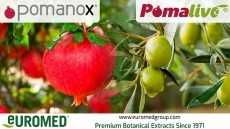New evidence supports camomile tea's health benefits
health ailments, including colds and menstrual cramps, UK
researchers will report.
The study lends some scientific support to use of the tea as an ancient remedy for numerous conditions.
Elaine Holmes, a chemist at Imperial College London, recruited 14 volunteers (seven women and seven men) who each drank five cups of the herbal tea daily for two consecutive weeks. The tea was made with the flowers and leaves of German camomile (Matricaria recutita), also known as manzanilla.
Daily urine samples were taken and tested throughout the study, both before and after drinking camomile tea.
The researchers found that drinking the tea was associated with a significant increase in urinary levels of hippurate, a breakdown product of certain plant-based compounds known as phenolics, some of which have been associated with increased antibacterial activity.
This could help explain why the tea appears to boost the immune system and fight infections associated with colds, say the researchers in the 26 January issue of the Journal of Agricultural and Food Chemistry.
Drinking the tea also was associated with an increase in urinary levels of glycine, an amino acid that has been shown to relieve muscle spasms. This could be responsible for its benefit in relieving menstrual cramps in women, probably by relaxing the uterus, noted the researchers.
Glycine also is known to act as a nerve relaxant, which may explain the mildly sedative effect of the tea.
Levels of both hippurate and glycine remained elevated for up to two weeks after the study participants stopped drinking the tea, indicating that the compounds may remain active for quite some time.
Additional studies are needed before a more definitive link between the tea and its alleged health benefits can be established.
Holmes commented: "This is one of a growing number of studies that provide evidence that commonly used natural products really do contain chemicals that may be of medicinal value."
Funding for the study was provided by UK-based Oxford Natural Products.
The online version of study was initially published on the journal's website on 21 December.










